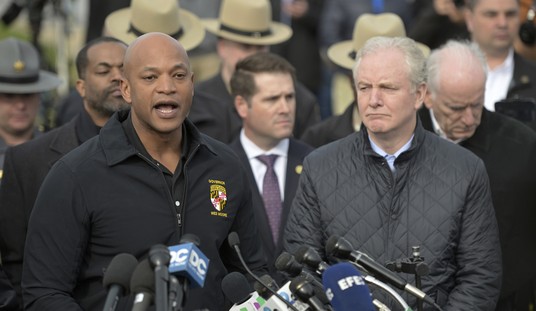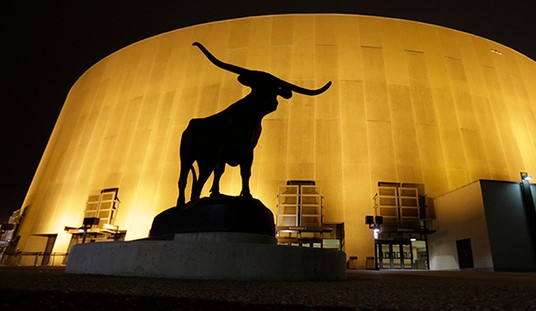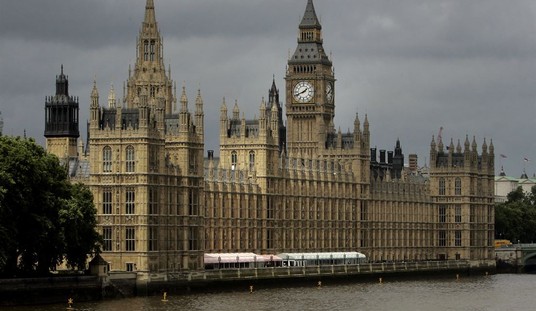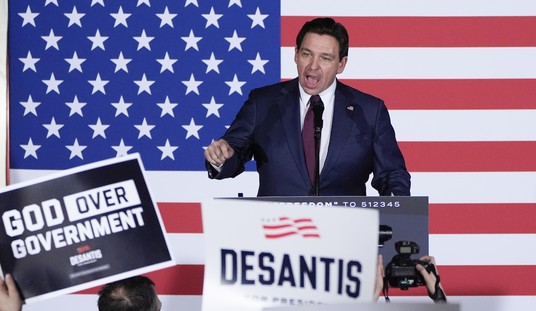“Create a democratic noose around Putin’s Russia,” urged Senator Lindsey Graham, Republican of South Carolina. “Revisit the missile defense shield,” suggested Senator Marco Rubio, Republican of Florida. “Cancel Sochi,” argued Representative Mike Rogers, the Michigan Republican who leads the Intelligence Committee, referring to the Group of 8 summit meeting to be hosted by President Vladimir V. Putin. Kick “him out of the G-8” altogether, said Senator Richard J. Durbin of Illinois, the Democratic whip.
The Russian occupation of Crimea has challenged Mr. Obama as has no other international crisis, and at its heart, the advice seemed to pose the same question: Is Mr. Obama tough enough to take on the former K.G.B. colonel in the Kremlin?…
“It’s the most important, most difficult foreign-policy test of his presidency,” said R. Nicholas Burns, a career diplomat who became under secretary of state in the George W. Bush administration. “The stakes are very high for the president because he is the NATO leader. There’s no one in Europe who can approach him in power. He’s going to have to lead.”
During his 90-minute phone conversation with President Obama on Saturday, Russian President Vladimir Putin hinted that Russian military intervention in Ukraine could go beyond Crimea, the region now under effectively occupied by Russia…
“Vladimir Putin stressed that in case of any further spread of violence to Eastern Ukraine and Crimea, Russia retains the right to protect its interests and the Russian-speaking population of those areas,” it said.
Behind the scenes, Obama administration officials are preparing a series of possible battle plans for a potential economic assault on Russia in response to its invasion of Ukraine, an administration source close to the issue told The Daily Beast. Among the possible targets for these financial attacks: everyone from high-ranking Russian military officials to government leaders to top businessmen to Russian-speaking separatists in Ukraine. It’s all part of the work to prepare an executive order now under consideration at the Obama administration’s highest levels…
“The expectation that this is going to change in 24 hours, that’s not real world,” a third senior administration official said. “This is a serious situation that the Russians have created, it’s going to take serious efforts to unwind it, and we are absolutely seriously engaged in the effort to do that.”
For all Obama’s hopes of creating an economic threat, there are relatively little trade or productive diplomatic ties between the United States and Russia. He’s largely dependent on being listened to by the world’s leaders, populations, businesses and international organizations from the European Union to the World Trade Organization…
Already, there’s a crack. The morning after Secretary of State John Kerry began floating the idea of kicking Putin out of the G-8, the German finance minister told a German news service Monday that he wasn’t sure this was a good idea.
Even small developments like that matter in Moscow, where the Russian leader is gauging his next move based on what kind of international response he thinks he’s likely to get…
“We’re now living in the era of the Putin Doctrine: Mother Russia has a right and an obligation to protect her children on the other side of international borders,” Talbott said. “We’re going to have to make very clear that it isn’t going to fly.”
Putin’s inner circle no longer fear the European establishment. They once imagined them all in MI6. Now they know better. They have seen firsthand how obsequious Western aristocrats and corporate tycoons suddenly turn when their billions come into play. They now view them as hypocrites—the same European elites who help them hide their fortunes.
Once Russia’s powerful listened when European embassies issued statements denouncing the baroque corruption of Russian state companies. But no more. Because they know full well it is European bankers, businessmen and lawyers who do the dirty work for them placing the proceeds of corruption in hideouts from the Dutch Antilles to the British Virgin Islands…
When Russia sees Spain, Italy, Greece and Portugal outbidding each other to be Russia’s best business partner inside the EU (in return for no mention of human rights), they see America’s control over Europe slowly dissolving.
At stake is not only the future of Ukraine, where the chaotically disorganized opposition to Yanukovich is waiting and wondering, but in the Middle East and throughout Asia, where many leaders have taken to questioning America’s commitment to the world. After pledging and then backing down from strikes against Syria last year, and staking his presidency on the withdrawal from America’s wars, Obama now has something to prove: He can take aggressive action. Whether he likes it or not, Putin and other world leaders appear to view him as indecisive and unwilling to take risks.
The only reasonable response, then, must be a powerful diplomatic thrust to isolate Putin and make immediately clear the costs of moving beyond Crimea into the rest of Ukraine. The risks for Obama in this are huge but he has no choice but to take them. Despite the fact that he needs the good will of Moscow in order to resolve the nuclear talks with Iran and peace negotiations over Syria, Obama must gamble that if he leads a decisive, united world response to the Crimean incursion, it will at once impress the Russian president and make Putin worry about his and Russia’s international image, a concern of the Kremlin’s that was so obvious during the just-concluded Sochi Olympics. Putin must be made to calculate that further recalcitrance not only over Ukraine but over Iran and Syria as well will only isolate him further.
Much depends on how clearly the West conveys to the dictator in the Kremlin — a partially comical imitation of Mussolini and a more menacing reminder of Hitler — that NATO cannot be passive if war erupts in Europe. If Ukraine is crushed while the West is simply watching, the new freedom and security in bordering Romania, Poland and the three Baltic republics would also be threatened.
This does not mean that the West, or the United States, should threaten war. But in the first instance, Russia’s unilateral and menacing acts mean the West should promptly recognize the current government of Ukraine as legitimate. Uncertainty regarding its legal status could tempt Putin to repeat his Crimean charade. Second, the West should convey — privately at this stage, so as not to humiliate Russia — that the Ukrainian army can count on immediate and direct Western aid so as to enhance its defensive capabilities. There should be no doubt left in Putin’s mind that an attack on Ukraine would precipitate a prolonged and costly engagement, and Ukrainians should not fear that they would be left in the lurch.
Meanwhile, NATO forces, consistent with the organization’s contingency planning, should be put on alert. High readiness for some immediate airlift to Europe of U.S. airborne units would be politically and militarily meaningful. If the West wants to avoid a conflict, there should be no ambiguity in the Kremlin as to what might be preciptated by further adventurist use of force in the middle of Europe.
In recent years, one of Russia’s greatest points of contention with the West has been over NATO’s plans to build of a missile shield in Europe. Russia has seen this as a major threat to its security, as the shield could wipe out Russia’s ability to launch nuclear missiles at the West. The long-standing nuclear deterrent that has protected Russia from Western attacks for generations – the Cold War doctrine of mutually assured destruction, or MAD – could thus be negated, Russia’s generals have warned. But after Russia decided to unilaterally invade its neighbor to the west this weekend, any remaining resistance to the missile shield project would be pushed aside by the renewed security concerns of various NATO members, primarily those in Eastern Europe and the Baltics. Whatever hopes Russia had of forestalling the construction of the missile shield through diplomacy are now most likely lost.
No less worrying for Putin would be the economic sanctions the West is preparing in answer to Russia’s intervention in Ukraine. Depending on their intensity, those could cut off the ability of Russian companies and businessmen in getting western loans and trading with most of the world’s largest economies. Putin’s allies could also find it a lot more difficult to send their children to study in the West or to keep their assets in Western banks, as they now almost universally do. All of that raises the risk for Putin of a split in his inner circle and, potentially, even of a palace coup. There is hardly anything more important to Russia’s political elite than the security of their foreign assets, certainly not their loyalty to a leader who seems willing to put all of that at risk.
First, we don’t know how far he will go — and he probably doesn’t know either. Whether he will seek to break Ukraine in two or place a pro-Putin government in power may depend on the costs we impose. Whether he will in the coming months and years seek to destabilize the Baltic nations — which were also once part of the USSR — may depend on what we do now. It’s wrong to assume Putin has an elaborate plan for 2014 and 2015 that he will follow religiously, and logical to believe that Putin takes advantage of opportunities and weighs costs and benefits.
Second, there is more than Putin to think about. Tyrants in places from Tehran to Beijing will also be wondering about the cost of violating international law and threatening the peace and stability of neighbors. What will China do in neighboring seas, or Iran do in its tiny neighbor Bahrain, if actions like Putin’s go without a response?…
All this is important for American interests even if the Crimea situation is viewed as nearly irreversible. In fact, if we think Putin will keep the Crimea, it’s even more important that we make him pay as high a price as possible for his aggression.
The 1980s are calling. They want to know if we want their foreign policy back…
If President Reagan could see what Russia is doing today, he would cock his head and say, “Well, there they go again.” And then he would deploy the whole panoply of resistance we used against Moscow in his day. He might start with the fact that Poland has strong ties to Ukraine’s pro-European majority and a direct interest in opposing Russia, making the Poles an obvious conduit for support to the new government in Kiev—both open and covert, and both economic and military. The Baltic states are also freaking out, given their own vulnerability to Russian aggression, and they can be counted on for extensive support. The urgent priority is to rapidly convert Western Ukraine into a “porcupine state”—one that may not be able to win a war with Russia outright, but can make such a war too painful to be appealing…
But we know what it looks like when American weakness and uncertainty allow an aggressive dictatorship and its allies to advance across the world. To avoid that outcome, we need to reverse course and do it fast.
If we don’t, pretty soon the 1970s will be calling.
But then we should not be surprised if Russia, to compensate for economic losses, and for the loss of prestige, would sign a security agreement with Iran, and would supply Iran with S-300 or perhaps S-400 missiles. You should not be surprised if Russia would do considerably more to support President Assad. And most obviously, you should not be surprised if Russia would introduce a new element of global instability by signing a security agreement with Beijing, and there is a considerable interest in Beijing in strengthening security ties to Russia. So far, Putin has not wanted to pull in that direction, because he wants to have a western option, because he wants to have an American connection. He also does not want to be Beijing’s junior partner. But if you deprive him of the European-American connection, we may alter the geopolitical balance by putting Russia closer to China. There are already discussions in Russia about how they would stop supplying their gas to Europe. They have storage facilities. They can reduce the production of natural gas. You know, this would be a situation very, very painful to Russia. But that would be a situation which may be in many respects worse than anything we have witnessed during the Cold War. We would hear the echoes of 1914…
We are speaking very loudly. We are carrying a small stick. We are not really disciplining the Russians. We are not clearly defining what is important to us. We are acting like King Lear. We are issuing pathetic declarations which nobody is taking seriously. When I saw Secretary Kerry on television yesterday, I think it was a very sad performance. He was visibly angry. He was visibly defensive. He was accusing Russians using very harsh language of violations of international law. His description of the political process in Ukraine which led to this situation was incomplete and disingenuous at best. And then, after he said all of these things, he did not say, “Well, because of the Russians violating international law, threatening international security, that because of that the President of the United States is moving our naval assets in the Black Sea!” With the language he was using, that’s what you would expect him to do. But he was carrying a small stick.
Rhetoric is not policy and sounding tough doesn’t roll back Russia’s advances.
If the EU and U.S. accept Russia’s land grab, they weaken the foundations of today’s international order, born out of the ashes of World War II and enshrined in the U.N. charter…
In the past, it was the U.S. that promoted and guaranteed the U.N.-order. In the role of a global quasi-sovereign, and faced with major threats, it sometimes violated this principle itself. But these were exceptions to the overall beneficial role the U.S. played in the promotion of a liberal democratic order.
Nowadays, however, Washington is diminishing its global footprint, with its taxpayers no longer willing to bear the biggest chunk of the burden to uphold world order.
The Kremlin has sensed a power vacuum and is stepping in.
“You may not be interested in war, but war is interested in you,” supposedly said Lev Bronstein, as Leon Trotsky was known when he lived in the Bronx, before he made the Red Army, the parent of the forces Putin is wielding. Barack Obama, who involved the United States in seven months of war with Libya, perhaps because the project was untainted by U.S. national interest, is seeking diplomatic and especially economic leverage against Putin’s ramshackle nation in order to advance the enormous U.S. interest in depriving him of Ukraine.
Unless Obama finds such leverage, his precipitous slide into Jimmy Carter territory will continue. As an expression of disdain for a U.S. president, Putin’s seizure of Ukraine’s Crimean peninsula is symmetrical with Leonid Brezhnev’s invasion of Afghanistan late in Carter’s presidency. Large presidential failures cannot be hermetically sealed; they permeate a presidency. Putin’s contribution to the miniaturization of Obama comes in the context of Obama’s self-inflicted wound — Obamacare, which simultaneously shattered belief in his competence and honesty, and may linger as ruinously for Obama as the Iranian hostage crisis did for Carter.
This may be condign punishment for Obama’s foreign policy carelessness and for his wishful thinking about Putin as a “partner” and about a fiction (”the international community”) being consequential. It certainly is dangerous.








Join the conversation as a VIP Member